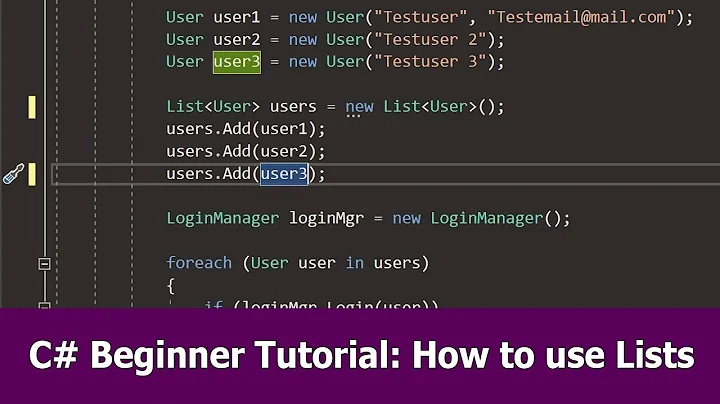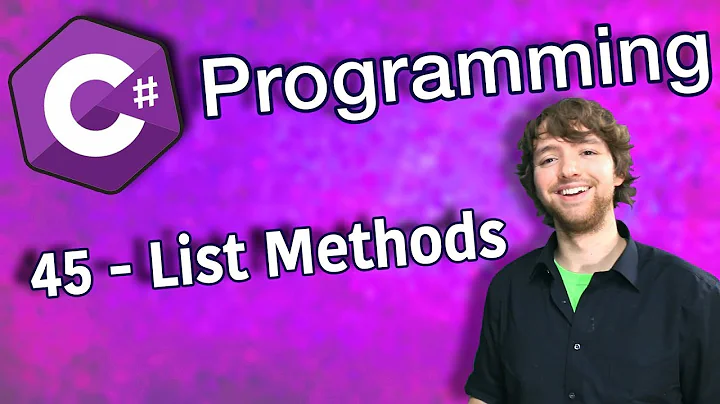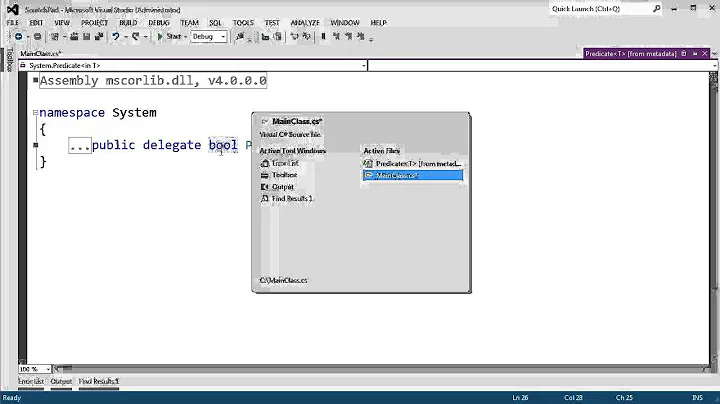How do I truncate a list in C#?
14,110
Solution 1
var itemsOneThroughTwenty = myList.Take(20);
var itemsFiveThroughTwenty = myList.Skip(5).Take(15);
Solution 2
You can use List<T>.GetRange():
var subList = myList.GetRange(0, 20);
From MSDN:
Creates a shallow copy of a range of elements in the source
List<T>.
public List<T> GetRange(int index, int count)
Solution 3
This might be helpful for efficiency, if you really want to truncate the list, not make a copy. While the python example makes a copy, the original question really was about truncating the list.
Given a List<> object "list" and you want the 1st through 20th elements
list.RemoveRange( 20, list.Count-20 );
This does it in place. This is still O(n) as the references to each object must be removed, but should be a little faster than any other method.
Solution 4
sans LINQ quicky...
while (myList.Count>countIWant)
myList.RemoveAt(myList.Count-1);
Related videos on Youtube
Author by
FinDev
Updated on April 28, 2022Comments
-
FinDev about 2 years
I know in python you can do something like
myList[1:20]but is there anything similar in C#? -
JaredReisinger over 13 yearsNote that these Linq extensions actually create an IEnumerable<> that stops after N items, rather than creating a new array/list. (This is kind of hidden by using 'var' for the variable type. If the code following the truncation iterates through the new list lots of times, you'll actually be re-evaluating the expression tree each time. In this case, you might want to tack a
.ToList()onto the end to force the items to be enumerated and a new list created. -
Raad about 11 yearsAs it stands you might consider adding some explanatory text, because less experienced users might struggle to understand your answer.
-
NetMage over 3 yearsUnless the
listcontains value types, in which case removal of references is skipped in .Net Core. -
Garr Godfrey over 3 years@NetMage Good point. You are referring to the O(n) and rightly point out this can be O(1) in those cases
-
Garr Godfrey over 3 yearsnot sure what this adds to other answers and the example uses an empty list.



![[Khóa học lập trình #C#_nâng_cao] - Bài 9: #List trong C# | HowKteam](https://i.ytimg.com/vi/p4oHYfmAvfU/hq720.jpg?sqp=-oaymwEcCNAFEJQDSFXyq4qpAw4IARUAAIhCGAFwAcABBg==&rs=AOn4CLDhYyzdOziBrNVgElO6vyT3etLNaQ)



![The Ultimate C# List Course [List Generic Collection in C# Tutorial - List Collection] - List in C#](https://i.ytimg.com/vi/X6KV8w-9QAo/hq720.jpg?sqp=-oaymwEcCNAFEJQDSFXyq4qpAw4IARUAAIhCGAFwAcABBg==&rs=AOn4CLBzcFKKpPAFu3pfODowKzkG6ch8IA)
